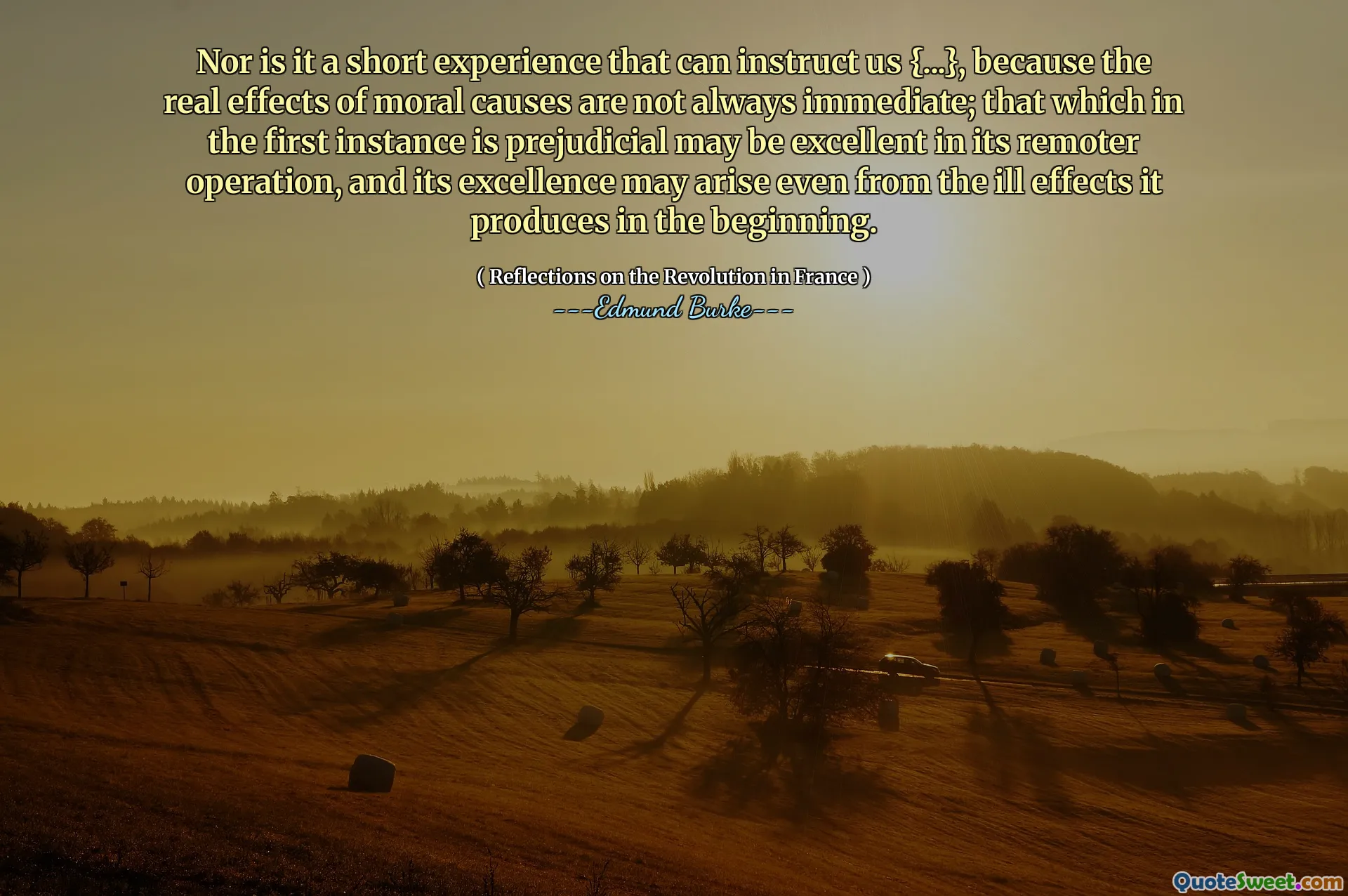
Nor is it a short experience that can instruct us {...}, because the real effects of moral causes are not always immediate; that which in the first instance is prejudicial may be excellent in its remoter operation, and its excellence may arise even from the ill effects it produces in the beginning.
In his work "Reflections on the Revolution in France," Edmund Burke emphasizes that the consequences of moral actions can often take time to manifest. He argues that experiences meant to educate us cannot be rushed, as their true impact may not be immediately apparent. This suggests that we must consider the long-term effects of our actions rather than only their initial outcomes.
Burke also points out that something that appears harmful at first might ultimately lead to beneficial results. A seemingly negative event can contribute to positive changes in the future, highlighting the complexity of cause and effect in moral reasoning. Thus, it's crucial to look beyond the surface to understand the broader implications of our choices.






